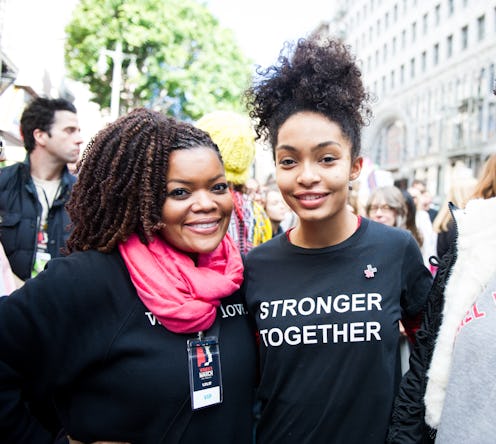
We've been talking a lot lately about how to help and support the organizations we believe in. If you don't have financial means to donate to organizations you love, however, you might be wondering: How can I help causes if I can't donate money? This is a valid question no matter what your financial background is; whether you're living in poverty, up to your neck in debt, or simply operating on a tight budget, it's valid to look at your bank account and decide that you can't part with any extra cash. But luckily, that doesn't mean you can't still help out, especially in this tumultuous and often frightening time.
In fact, it's likely that for many organizations, your skills will be more useful than your money. Sometimes organizations will put out calls for volunteers and specific services on their website or social media pages; other times, they simply have contact information. If you have a specific way you'd like to work with an organization, or simply want to know what they might be in need of, feel free to reach out and simply ask. And if they happen to be full-up on helping hands right now, move along to the next one (and maybe check back with the first one later). It doesn't hurt to give particular attention to smaller organizations that might not attract the limelight of certain heavy-hitters or more established organizations, either.
Still unsure of what you can offer? Check out the seven suggestions below as a good starting place, and remember: Creativity is valuable, so think outside the box!
1Offer Your Skills Pro Bono
Even if you don't have money to spare, you likely have valuable skills and a few hours per week or month. Needed skills vary based on the organization, but consider what you have under your belt: Web design? Grant writing? Community organizing? The ability to speak multiple languages? A law degree? Helping an organization in a desirable, skill-heavy area can make a world of difference.
2Spread The Good Word
Even if you can't go to events yourself, you can pass on information to friends, family, and neighbors who might be interested. Social media works for this, but word of mouth is also useful.
3Promote Positive Visibility
Spread positive messages about what organizations are doing, whether it's by promoting links from their official websites, sharing articles where their work is discussed, or passing along interviews and quotes from the people doing the good work.
4Reach Out To Representatives
Reaching out to your representatives is a hands-on way to get involved without spending a dime. Whether you want to call your representatives or send a letter, reaching out is always a good move.
5Offer Emotional Support
If you're in a good place to provide emotional support for those around you, do so! Being able to offer a listening ear to those who might be worried, anxious, or facing activism burnout and struggling with what to do next is a great way to be supportive without signing a check.
6Educate Yourself On Diverse Perspectives
Take the time to read diverse perspectives from all of those impacted by the causes you care about, and think seriously about the intersections of marginalized identities within these communities.
7Show Up For Events
Marches, peaceful protests, community events... These are generally about numbers in attendance as much as they're about any kind of fundraising. Even if you don't have a dollar to spare, simply showing up can be a huge way to show support and get involved.